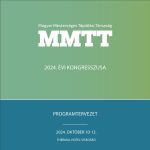An adequate nutritional status is crucial for optimum function of cells and organs, and for wound healing. Options for artifi cial nutrition have greatly expanded in the past few decades, but have concomitantly shown limitations and potential side-eff ects. Few rigorous randomised controlled trials (RCTs) have investigated enteral or parenteral nutritional support, and evidence-based clinical guidance is largely restricted to the fi rst week of critical illness. In the early stages of critical illness, whether artifi cial feeding is better than no feeding intervention has been given little attention in existing RCTs.
Expected benefi cial eff ects of various forms of early feeding interventions on rates of morbidity or mortality have generally not been supported by results of recent high-quality RCTs. Thus, whether nutritional interventions early in an intensive care unit (ICU) stay improve outcomes remains unclear. Trials assessing feeding interventions that continue after the first week of critical illness and into the post-ICU and post-hospital settings are clearly needed. Although acute morbidity and mortality will remain important safety parameters in such trials, primary outcomes should perhaps, in view of the adjunctive nature of nutritional intervention in critical illness, be focused on physical function and assessed months or even years after patients are discharged from the ICU. This Series paper is based on results of high-quality RCTs and provides new perspectives on nutritional support during critical illness and recovery.
A teljes cikket az alábbi linkre kattintva olvashatja el:








